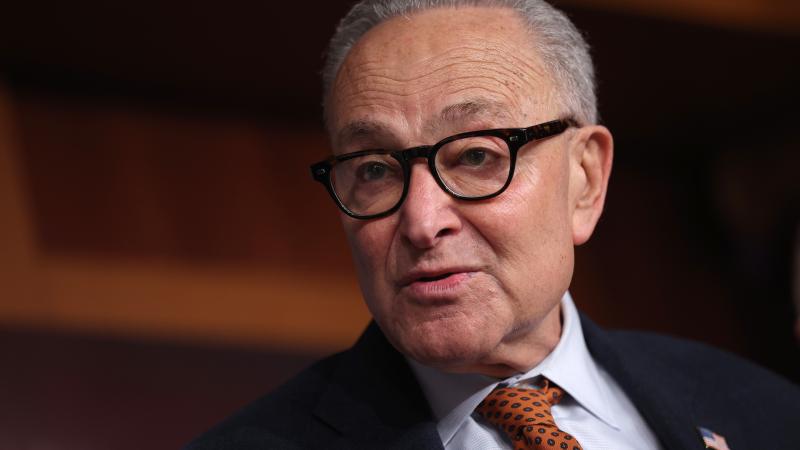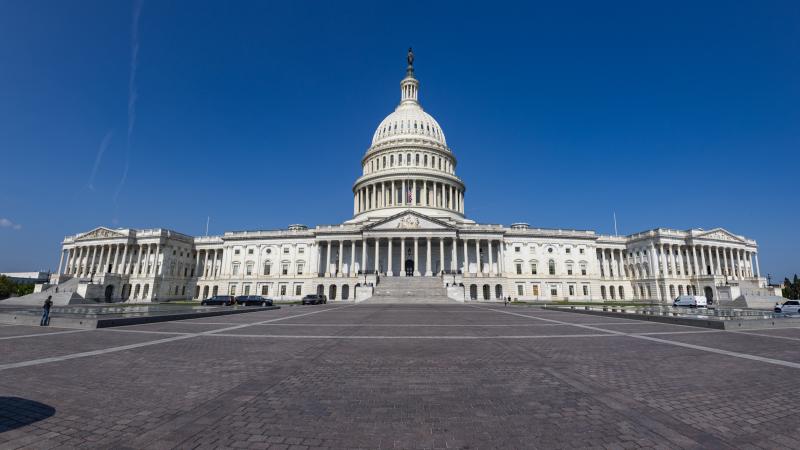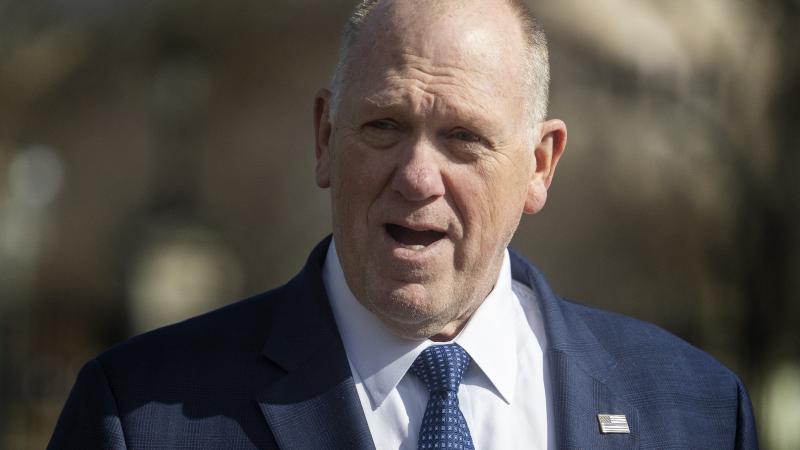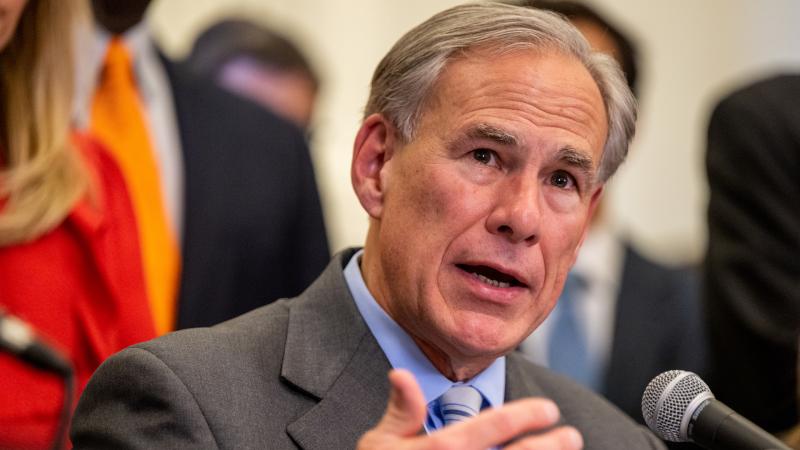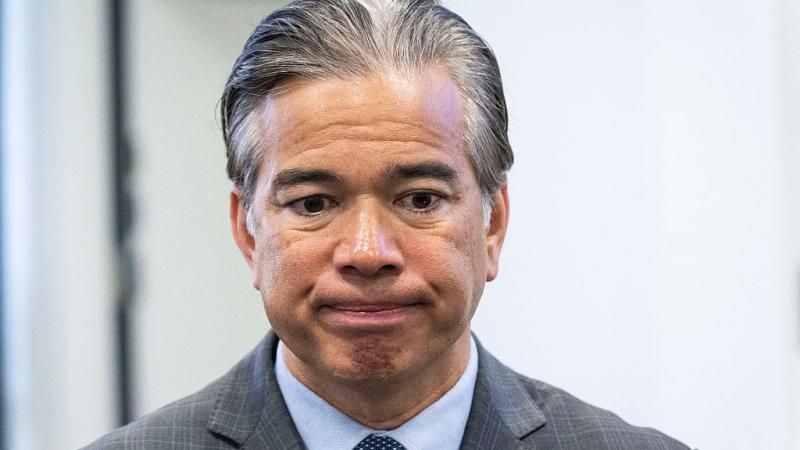Reduction in red meat as tuition skyrockets illustrates Ivy League 'cartel,' Congress hears
Brown University's sticker price is $93,000 yet its deficit is $46 million, "my dorm floods when it rains and the burger patties have been replaced by an unappetizing beef-mushroom blend," creator of Bloat@Brown tells hearing.
College students have long complained about cafeteria food that is less than appetizing, or more recently, culturally offensive, such as purported Vietnamese sandwiches made with ciabatta and pulled pork.
But Brown University student Alex Shieh, publisher of the Brown Spectator and creator of the Department of Government Efficiency-like Bloat@Brown database of administrators, may be the first student in American history to claim campus food is evidence of antitrust violations.
He testified at a House Judiciary Antitrust Subcommittee hearing Wednesday on the "elite universities cartel" that has allegedly kept the cost of attendance artificially high in the Ivy League and near-Ivies and suppressed competition by making comparison shopping nearly impossible, even after a congressional antitrust exemption expired in 2022.
The sticker price of Shieh's school is $93,000 a year, yet it has a $46 million deficit, "my dorm floods when it rains and the burger patties in our dining hall have been replaced by an unappetizing beef-mushroom blend" under a red-meat-reducing sustainability program that is "really about the cost," Shieh told lawmakers.
It's not a coincidence that the cost of higher education nationally has risen about 180% since the 1990s and Brown's bureaucracy has grown about 160% in "recent decades," Shieh said.
Under congressional pressure last month, the Rhode Island Ivy cleared Shieh and his Spectator board of trademark and information technology violations based on the relaunch of the conservative-libertarian newspaper and Bloat@Brown's creation, respectively.
It had already dropped charges alleging Shieh misrepresented himself as a journalist in his DOGE-like emails to administrators and emotional harm for publishing their job information in Bloat@Brown, which used artificial intelligence to rate their positions.
"Like organizations and residents across the country, our physical infrastructure is not immune to the full impacts of severe weather events" such as a "flash flood" that "breached lower-level entry points" including a residence hall, Brown spokesperson Brian Clark wrote in a lengthy email that incorporated its prior responses to Shieh's allegations over two months.
While it's seeking to reduce "red meat consumption in dining halls by 25% by 2025," Brown is still offering "red meat choices along with other dining choices with a lesser environmental impact," Clark said. "This is not a financial measure."
Brown's fate is less immediately imperiled than its fellow Ivy Columbia, with the Department of Education notifying its accreditor Wednesday that the New York City university is violating accreditation requirements through Columbia's "deliberate indifference toward the harassment of Jewish students" after the Oct. 7, 2023, Hamas attack on Israelis.
At prestigious Paris university, 'there's no diversity deans'
Six of the eight Ivies have endowments over $10 billion, yet they deliberately keep class sizes small as applications soar to "inflate their perceived prestige," with Harvard admitting a smaller class in 2023 than in 1978 and hiking tuition from $600 in 1950 — about $8,000 in 2025 dollars — to $60,000 today, Wisconsin GOP Chair Rep. Scott Fitzgerald said.
Elite schools first set the "same general price," then demand highly detailed information to "squeeze every dime they can" from students and families, while turning a blind eye to disruptive protests and antisemitism, said Judiciary Chairman Jim Jordan, R-Ohio.
This creates an "umbrella effect" that trickles down to higher tuition everywhere, Fitzgerald said.
He compared it to the "Ivy overlap group," founded in 1958, that settled Justice Department price-fixing charges in 1991. Recent legal discovery revealed an administrator complaining she couldn't find enough qualified students with rich parents, Fitzgerald said.
Rep. Michael Baumgartner, R-Wash., said elite higher ed resembles diamond companies that inflate a commodity into "a precious item of limited scarcity" and that "Democrats are great if you're a college administrator" but not a student. He bragged that the GOP-controlled state Senate, in which he served, lowered tuition 20%.
He taught at the prestigious Sciences Po in Paris, where "there's no diversity deans, student housing deans, student welfare deans," a contrast to his graduate degree conferrer Harvard, which Baumgartner said resists his legislation to limit foreign influence in higher ed.
Several elite colleges have already settled for a combined $320 million in a 2022 suit alleging they didn't provide need-blind admissions – the requirement for the antitrust exemption that expired in 2022 — and a newer suit alleges even more are still coordinating, American Enterprise Institute senior fellow Preston Cooper testified.
He emphasized the differences between the Ivy League and other private colleges in how many students get financial aid (52% versus 80%) and how much they spend per student ($126,000 and $35,000). The Ivies hire three times more staffers per student, Cooper said.
Students have to be admitted to elite schools to figure out how much they will pay, and "at that point the college sort of has you captive," Cooper told Rep. Ben Cline, R-Va.
Hausfeld antitrust partner Scott Martin called for "heightened vigilance" in a sector where tuition outpaces inflation seven-fold and elite colleges have ample opportunities to collude through presidents' meetings and the College Board.
"Special sectoral rules and regulation have at best a mixed track record," he said.
"I'm exactly who the Ivy League was built for" as a legacy student whose parents can afford the sticker price, but "equally qualified, low-income students are vastly underrepresented" at Brown, Shieh said, citing Brown economist John Friedman's research. He noted Brown settled the need-blind suit for nearly $20 million last year.
For the crime of detailing Brown's administrative bloat, which makes it far more expensive than Oxford and Cambridge, Shieh's Social Security number was leaked and his database hacked, he said, calling on lawmakers to subpoena its president, Christina Paxson. Asked by Cline whether the Brown sticker price was worth it, he responded "just barely."
Republicans are hypocrites for voting to cut Pell grants, which push students into the "predatory private loan market," and they discourage "the brightest minds in the world" from coming to America by "kidnapping students and academics off the street," said the subcommittee's top Democrat, New York Rep. Jerry Nadler.
Judiciary ranking Democrat, Rep. Jamie Raskin, of Maryland, mused they should hold a hearing on how the Trumps and son-in-law Jared Kushner's family "buy their way in" to elite education. He asked rhetorically whether Republicans were going to investigate Elon Musk now that the DOGE cheerleader has criticized Trump's big beautiful bill over its steep price tag.
Their lone witness, Century Foundation President Julie Morgan, said focusing on elite schools at the expense of community and "open access" colleges, amid the GOP attack on Pell grants, Medicaid and SNAP benefits and for-profit college practices trickling up, is like "looking for a needle in a haystack while the rest of the haystack is on fire."
She believes the "authoritarian" Trump administration is trying to "restore the role of the Harvards and Yales of the world as finishing schools for the children of [the] wealthy and well-connected." It will shift "scientific primacy" to China, Morgan told Raskin.
'I can't hear one peep out of' Democrats about campus antisemitism
Republicans and Democrats tried to corner each other's witnesses and repeatedly entered media coverage that backed their narratives into the congressional record, such as Trump University's $25 million settlement with students who claim they were "duped."
Morgan deflected when Rep. Darrell Issa, R-Calif., asked whether she really believes small market share should exempt colleges like her "new Ivy" alma mater, Boston College, which "cater[s] to the ultra-rich," from antitrust scrutiny. Collusion is "per se unlawful," Martin said.
Raskin challenged Shieh, first a minor celebrity for opposing race-based admissions before the Supreme Court struck them down, to advocate for less privileged students through Pell grants, federal student loans and work-study programs. Subsidizing education and removing students from the payment equation increases the costs, Shieh replied.
"Isn't that just wildly ironic that [Brown] would go after li'l ol' you" instead of "the antisemitism all over their campus," Rep. Lance Gooden, R-Texas, told Shieh. "I can't hear one peep out of" Democrats about campus antisemitism.
"It's one thing to create a vast, useless administrative bureaucracy to justify an exorbitant tuition rate" but then Brown threatened Shieh for exposing it, said Rep. Troy Nehls, R-Texas, one of the members to demand Brown back down against Shieh. He's thrilled the House approved the 21% endowment excise tax in its reconciliation bill.
Brown's Clark called it "regrettable that a witness in today’s hearing offered so many misrepresentations about Brown’s students, employees and efforts to provide an exceptional educational experience and conduct high-impact research."
It has commensurately increased staff to "generate medical treatments and scientific breakthroughs," with only 35% staff growth as its "research output doubled" in the past decade, and to "prepare students for successful lives and careers."
Brown meets all of each undergraduate's "demonstrated financial need," and for families with "typical assets," it covers full tuition up to $125,000 earnings, and "all expenses" for families under $60,000 a year.
"We continue to see a false 'one administrator for every two students at Brown' claim," Clark wrote, without noting that Shieh specified the statistic refers to undergraduates. Clark said the statistic omits "4,000 graduate and medical students who comprise more than one third of our student body."
The "overwhelming number" of new administrative jobs are in "Brown’s academic units … rather than in central administrative offices," he said.
The Facts Inside Our Reporter's Notebook
Documents
Videos
Links
- Vietnamese sandwiches made with ciabatta and pulled pork
- Bloat@Brown database
- House Judiciary Antitrust Subcommittee hearing
- elite universities cartel
- congressional antitrust exemption expired
- red-meat-reducing sustainability program
- Shieh told lawmakers
- cleared Shieh and his Spectator board
- relaunch of the conservative-libertarian newspaper
- Bloat@Brown's creation
- dropped charges against Shieh for misrepresenting
- emotional harm for publishing their job information in Bloat@Brown
- violating accreditation requirements
- deliberate indifference towards the harassment of Jewish students
- about $8,000 in 2025 dollars
- settled Justice Department price-fixing charges in 1991
- legislation to limit foreign influence in higher ed
- Preston Cooper testified
- Scott Martin
- Brown settled the need-blind suit
- DOGE cheerleader has criticized Trump's big beautiful bill
- Julie Morgan
- Trump University's $25 million settlement
- 21% endowment excise tax

